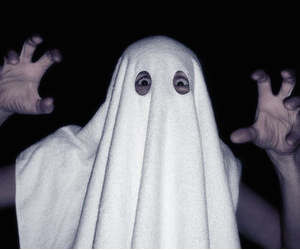Have you ever had a dream where a dead person you once knew was speaking to you? Did it seem real?
Have you ever dreamed of a genie? A demon? A zombie?
Did you ever have something happen to you in a dream and then have the same thing happen to you again in real life?
Did it make you uncomfortable—or was it thrilling?
Whatever your feelings about the experience, relax. Many others have experienced the same thing.
Welcome to the woo-woo
“Woo-woo” is defined as something dubiously or outlandishly supernatural or unscientific.
Some people talk freely about these kinds of experiences.
Others believe in keeping them to themselves. They’re embarrassed.
Still, others deny they ever happened.
No matter how real it felt at the time, they attribute the experience to being under stress, a drink they consumed, or another excuse.
This latter group is the most likely to dismiss the idea of dream journaling right out of hand.
They’re more afraid of something that makes them feel like they’re strange than they are curious about the world around them—as well as the world they can’t see.
The paranormal land of dreams
The world of sleep occurs at the boundary line of seen and unseen. Much of it can be easily studied because it can be measured.
Much of the rest, such as dreams and feelings, can’t readily be objectively studied.
We can hook someone up to an EEG machine and track their brainwaves. These changes in brainwaves correspond to five separate stages found in all people. Because of this, modern medical science knows many ways of treating sleep dysfunctions like insomnia and sleep apnea.
And we know even more than that. We know how much sleep people need. We can track the amount of sleep we get at home. Accelerometers in many fitness and sleep trackers like Fitbit can monitor the amount of sleep someone is getting. It won’t be as accurate as the results from polysomnography because the accelerometer is only using one measurement point but it’s not bad for general information.
On the other end, the hopelessly unscientific end, there’s the paranormal.
A paranormal experience means that whatever happened is strange. The experience lies beyond the realm of scientific understanding.
Trying to understand what lies beyond experiences, paranormal or otherwise, is how society grows in knowledge.
Even if you are, physical measurements as in an EEG or EKG wouldn’t provide any definitive proof.
When it comes to dreams, that’s difficult because you’re usually not hooked up to any measuring equipment.
Dreams of the deceased
We’ve all heard stories of people dreaming and having conversations with those who’ve died. The characters in the dream behaved with the same mannerisms they had in real life. The dreamer awakens believing they’ve encountered the deceased.
We’ve all heard talk about “spirit guides” and angels. Some have had dreams of Hell and other of far-off planets.
Not all of the reported experiences are true or real. Some are undoubtedly the result of psychosis, a delusion. Others are imagination, lies.
But what if some of them are true?
You don’t have to believe in any woo-woo spirituality to benefit from studying your dreams. Even if you have one or more of these dreams, it doesn’t make you crazy. Plenty of sober people have had these kinds of dreams before. A lot of times, when you study to understand the dream, the symbolism starts to become clear. What seems to be terrifying becomes clear when you realize what your subconscious is processing by means of symbolic language.
You don’t have to be trying to find a solution to anything to benefit from dream journaling. Remembering and understanding your dreams can help you better understand yourself. It can increase your awareness of the people in your life, your environment, and your circumstances. Your subconscious notices what your conscious mind misses.
Dream journaling is an underutilized form of meditation. In meditation, you gain awareness of the world around you (including the people in your life past and present) and your life itself. It’s a form of self-teaching, integral to wellness.
The same thing happens in dream journaling. You gain a heightened perception of where you are in life. Dream journaling can reveal truths, both uncomfortable and profound. It can also make you wonder if you’re crazy. No matter, dream journaling is for anyone who loves the “truth” or “truths.” We all need inspiration, and these insights give a vast amount.
For now, may all your dreams be sweet.
James Cobb, RN, MSN, is an emergency department nurse and the founder of the Dream Recovery System. His goal is to provide his readers with simple, actionable ways to improve their health and maximize their quality of life.
This post contains some affiliate links for which we receive a small commission if you click the link and make a purchase. Our opinions are our own.
